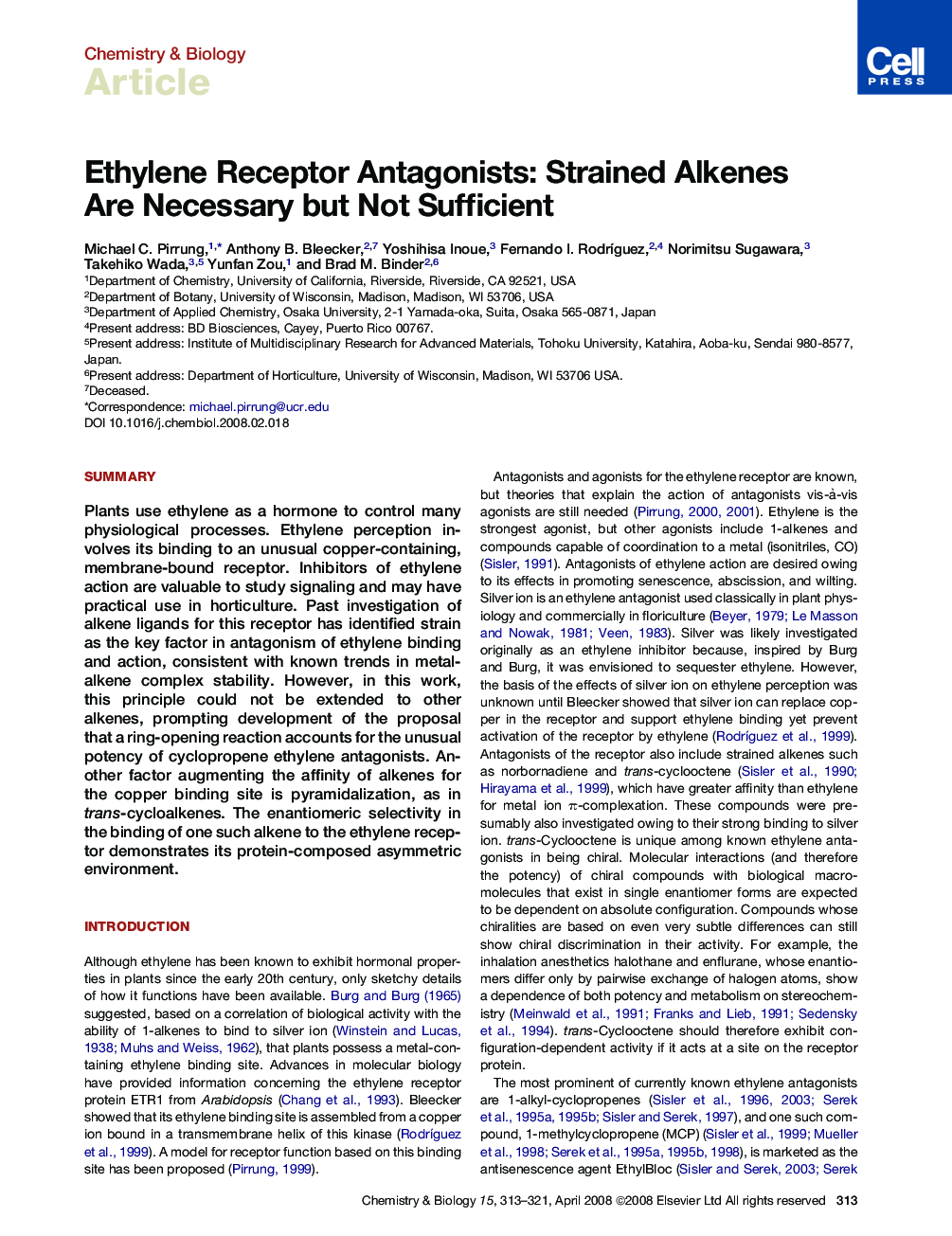| Article ID | Journal | Published Year | Pages | File Type |
|---|---|---|---|---|
| 1392123 | Chemistry & Biology | 2008 | 9 Pages |
SummaryPlants use ethylene as a hormone to control many physiological processes. Ethylene perception involves its binding to an unusual copper-containing, membrane-bound receptor. Inhibitors of ethylene action are valuable to study signaling and may have practical use in horticulture. Past investigation of alkene ligands for this receptor has identified strain as the key factor in antagonism of ethylene binding and action, consistent with known trends in metal-alkene complex stability. However, in this work, this principle could not be extended to other alkenes, prompting development of the proposal that a ring-opening reaction accounts for the unusual potency of cyclopropene ethylene antagonists. Another factor augmenting the affinity of alkenes for the copper binding site is pyramidalization, as in trans-cycloalkenes. The enantiomeric selectivity in the binding of one such alkene to the ethylene receptor demonstrates its protein-composed asymmetric environment.
